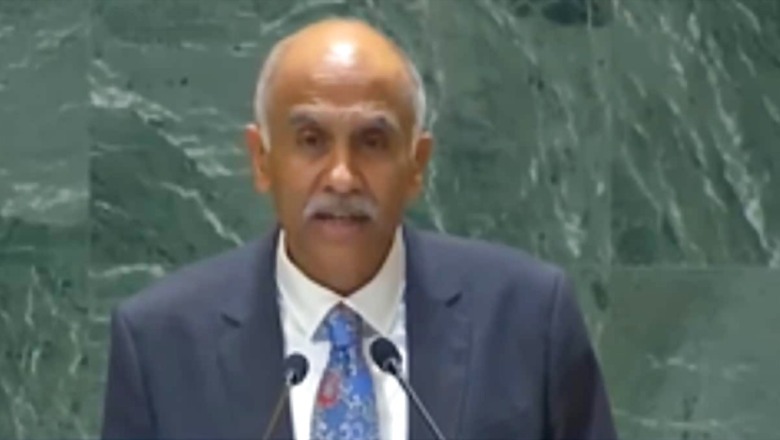
views
As new theatres of conflict emerge, India has called for “global action” to match the ambitious commitment to fight terrorism made in the Pact for the Future by world leaders in their summit.
India appreciates “the strong message condemning terrorism in the Pact,” Permanent Representative P. Harish said on Monday.
“On this, we would like to stress that ‘Global Action’ must now match ‘Global Ambition’,” he said.
Stressing the need for urgent, unified action, he said that terrorism “continues to be a serious threat to global peace and security, while areas such as cyber, maritime and space, emerge as new theaters of conflict”.
The Pact adopted last month at the Summit of the Future makes one of the most unequivocal declarations on terrorism: “We reaffirm that all terrorist acts are criminal and unjustifiable regardless of their motivation or how their perpetrators may seek to justify them.”
This undercuts attempts by Pakistan and some other countries to muddle the definition of terrorists by claiming that some can be considered “freedom fighters” as they try to block the Comprehensive Convention on International Terrorism (CCIT) proposed by India 28 years ago.
Addressing the General Assembly session on ‘Strengthening the UN System’, Harish spoke of India’s leading role on behalf of the Global South by amplifying its voice in the contributions to the framing of the Pact, making it more “human-centric.”
The Pact is aligned with India’s ‘Vikst Bharat@2047’ – the vision for making it a developed nation by the centenary of its Independence, he said.
“While prioritising sustainable development, we tried to ensure that human welfare, food security, health security, energy security, and climate finance are also addressed,” he said.
He cautioned that “evasion of climate action responsibilities by the developed undermines the growth prospects of the developing.”
Harish recalled that Prime Minister Narendra Modi stated in his address to the Summit that reform is the key to the UN’s relevance.
Harish criticised the Pact for coming up short on reforming the Security Council.
He said that Pact’s chapter on ‘Transforming Global Governance’ was not ambitious enough and did not reflect the views of the majority of UN members calling for the expansion of both non-permanent and permanent members.
The inputs to the Pact from the Inter-Governmental Negotiations for Council reform did not go far enough “in addressing the critical issues related to UN Security Council reforms and expansion,” he said.
It also did not stress holding text-based negotiations with a fixed time frame that the majority wants, he added.
Even though most countries want the Council reform negotiations to adopt a negotiating text that lays out an agenda for the discussions and is used to mark the progress, a small group of countries led by Italy and including Pakistan are blocking the adoption of the text and lobbied against its mention in the Pact.
Harish said that more needs to be done to strengthen the role of developing nations in the governance of international financial institutions and to address their debt problems.
The declaration of the G20 nations adopted under India’s presidency last year, he said, converged with the Pact “on some key principles such as, making the international financial system more inclusive, sustainable, and resilient, while advocating for stronger, more democratic global financial institutions.”


















Comments
0 comment